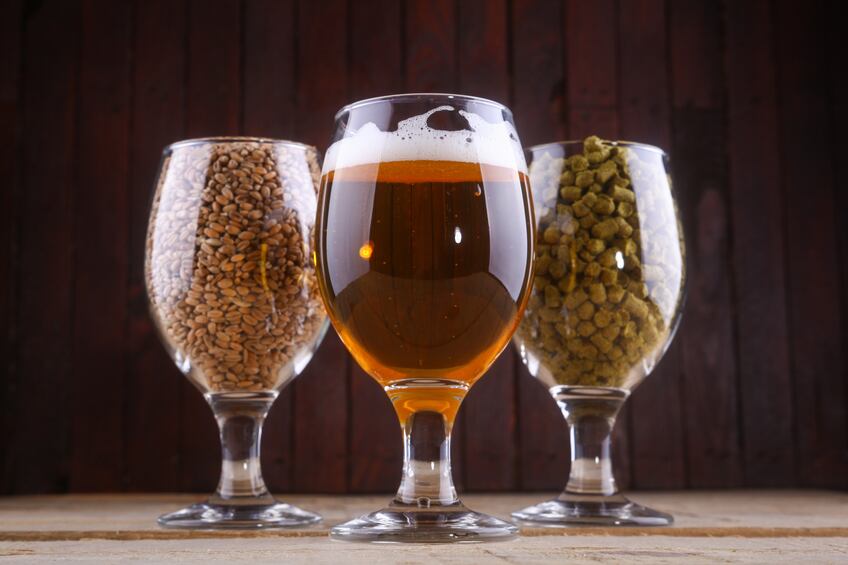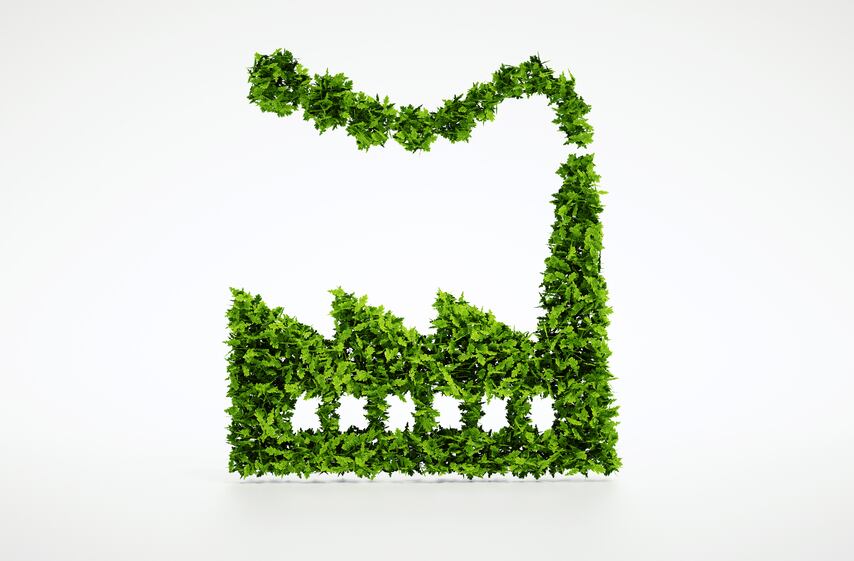Transforming barley into malt for breweries is a continuous 10-day process of washing, steeping, germination, drying and flavouring.
This process needs water which is then flushed back into the waterways and produces CO2, which is released into the air.
So when French start-up Algae Natural Food came to the Strasbourg malt house of ingredients giant Cargill with a request to take this waste CO2 and nutrient-filled water off its hands, it was “like a dream”, director of the facility Gilles Lazar told us.
“We saw that everything was perfectly matching, that their process and our process were exactly the opposite and the synergy could be perfect.”
100 tonnes a year
A pilot of the co-production project has delivered promising results so far and the pair expect to scale-up in the first half of next year.
Cargill calculates the initiative will help cut the plant's CO2 emissions by 5% and make use of 10% of its waste water.
Algae Natural Food hopes to produce 50-80 g of spirulina each day from the closed-system cultivation, which it says compares to about 10-40 g produced by conventional open pond cultivation.
This should translate to about 60 to 100 tonnes of organic-certified spirulina per year, which will be made into powder, tablet and bead products.
Lazar said it remained to be seen how the revenue from these products would be divided, and declined to give further information on the different models currently being discussed.
Pilot plant
If the co-production proves successful, it could be echoed in different Cargill plants and see different algae species cultivated.
“We have shared this inside our company and I have only had positive feedback. And if this is something that runs really well and everything is fine – which I really expect – it’s something we can imagine could be placed in other malt houses,” Lazar said.
Cargill has 15 malt houses in total in North and South America, Europe and Australia.

Strasbourg is described as neither the smallest nor biggest with a yearly production of 75,000 tonnes of malt.
2014-founded Algae Natural Food also has expansion plans, with 10 jobs created in the Alsatian region this year already and plans to double this staff count in the near future.
The circular economy
The project comes as part of a regional strategy to make Strasbourg’s port economy where Cargill’s plant is based more environmentally friendly.
Lazar said there needed to be a paradigm shift in thinking about what goes in and what comes out of production plants.
“Today we have to think about this because today we are seven billion people, tomorrow nine billion. So we have to think of another way to produce protein in a more environmental way so this is for sure something Cargill has in mind and wants to explore.”
The concept of waste reduction has also been gathering momentum on an EU-level, with the European Commission adopting an ambitious Circular Economy Package.
Earlier this year the EU put its money where its mouth is by awarding €800,000 to the project PUReOPE (Process for Upgrade and Recovery of Polyphenol Extract), which aims to get high value polyphenol compounds from brewing, distilling, malting and cereals processing waste.

At the time Michael Clancy, director of the project’s lead partner FDT Consulting, told us at the time one of the main challenges was changing perspectives on what waste is.
“There should be more focus on the Waste Hierarchy and Circular Economy - just because something isn’t valuable for your production site, doesn’t mean it is waste,” he said.
“I think there will always be some ‘waste’ in the food industry but most of it is simply something that is in the wrong place.”
An EU-backed report published this year estimated that 88 million tonnes of food are wasted each year in the EU, with associated costs of about €143bn.
The Commission has called on all actors in the food chain to help reduce this waste, from farmers to processors and retailers to consumers.
Processors account for the second-largest chunk of this food waste (19%), following households (53%).
